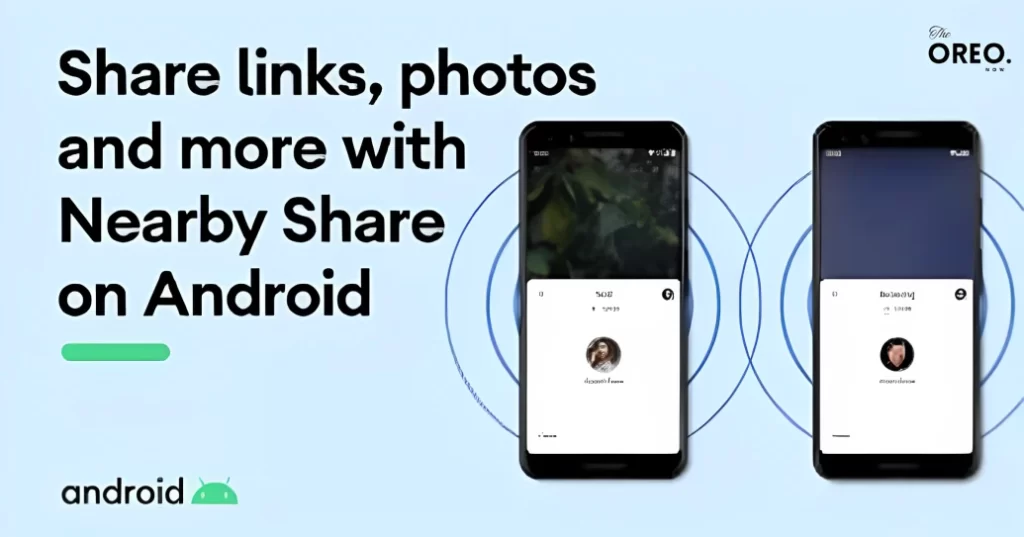“Unveiling the Secrets: Android Devices and Sharing Personal Data”
In the ever-connected world of Android devices, an unsettling mystery shrouds our digital interactions. Behind the allure of convenience and seamless functionality lies a shadowy realm where personal data is surreptitiously shared without our knowledge. As we unlock our smartphones, unaware of the labyrinth of data-sharing mechanisms hidden within, third-party app developers eagerly collect and exploit our most intimate information, crafting intricate profiles that reveal our deepest secrets.
Even the Android operating system itself stands as a sentinel and accomplice in this clandestine exchange, raising questions about the extent of control users truly possess over their Android device sharing data.
In this gripping exposé, we embark on a journey to unravel the enigma of Android device sharing data. With each revelation, suspense and vulnerability intensify, as the implications of this silent pact between technology and our digital identities, including Android device sharing data, become clearer.
As we confront the unsettling truth that lurks beneath the surface, we must arm ourselves with the knowledge to protect our digital sanctuaries and regain control over our personal data and Android device sharing data.
Revelation of Personal Data Sharing
In a shocking turn of events, a Switzerland-based hacker named Maia arson crime has unearthed a disturbing revelation – thousands of Android devices have been unwittingly sharing personal user data for over seven years. This data includes sensitive information such as contacts, messages, call logs, recordings, and location.
The alarming data breach has been traced back to an insidious phone surveillance app called Spyhide, also referred to as Spouseware. According to reports by TechRadar, this stealthy app has exposed the data of over 60,000 Android users since 2016. Its primary purpose was to facilitate spying on partners suspected of infidelity, discreetly gathering information about their activities to satisfy the doubts of the user. However, the insidious data collection was not limited to the app’s users, as an Iranian software company, Virsys (also known as Virsis), was also found to be involved in accumulating this sensitive data.
Privacy Concerns Amplified
This unsettling revelation has ignited widespread concerns about data privacy and security on Android devices. The Spyhide app’s surreptitious functioning raises questions about user consent and the responsibility of app developers to ensure ethical data practices. The implications of personal data exposure are profound, as it leaves users vulnerable to potential identity theft and malicious exploitation. This data breach serves as a stark reminder of the ever-present threat to digital privacy and highlights the need for stringent measures to safeguard users’ personal information. As authorities investigate the extent of the breach and its consequences, users are urged to exercise caution while downloading apps and to stay vigilant about their data permissions, ensuring they maintain control over their private information.

Data Sharing by Third-Party App Developers
The intricate web of Android devices and sharing personal data involves third-party app developers as a significant player. Users commonly grant permissions to these apps during installation, granting access to specific device aspects. However, the ethical practices among developers vary, with some unscrupulously misusing acquired data for targeted advertising or even covertly selling it to other entities, all without obtaining explicit user consent.
Unfortunately, data transparency often remains elusive, as many app developers fail to provide clear disclosure of their data collection and sharing practices.
The presence of convoluted privacy policies creates obstacles that hinder users’ understanding of how their data is utilized. Consequently, unwittingly, users expose themselves to potential data breaches and infringements on their privacy, leaving their personal data vulnerable to unauthorized access. Staying vigilant and demanding greater transparency from app developers are crucial steps toward securing Android devices and protecting personal data in this digital age.
Vulnerabilities in Data Security
Beyond intentional data sharing, Android devices face significant security vulnerabilities that expose users to potential breaches and unauthorized data access. Cybercriminals actively exploit weaknesses in the operating system and apps, gaining access to sensitive information without authorization.
Moreover, the prevalence of malware and spyware threats further exacerbates the challenge of data privacy, as they infiltrate devices, extracting personal information without users’ knowledge or consent. Staying vigilant and implementing robust security measures is crucial to safeguarding personal data from these lurking threats.
In the ever-evolving landscape of Android devices, the revelation of personal data sharing with third-party app developers and potential security vulnerabilities has raised critical concerns about user privacy and data protection. As users, it is imperative that we remain vigilant and informed about the extent of data sharing, especially when granting app permissions. By understanding the risks associated with data collection, we can take proactive steps to safeguard our personal information.
To protect our digital sanctuaries, we must demand greater transparency from app developers and hold them accountable for ethical data practices. Regularly reviewing app permissions and scrutinizing privacy policies can empower us to maintain control over our personal data. Moreover, staying up-to-date with the latest security measures and installing reputable antivirus software can fortify our defenses against potential cyber threats.
As we navigate the complex realm of Android devices and data sharing, let us remember that knowledge is our greatest weapon. By prioritizing user privacy and advocating for stringent data protection policies, we can shape a digital future where personal information remains secure and users maintain authority over their own data. Together, we can pave the way for a safer and more trustworthy digital landscape for all.
Also Read: Google’s AI-Powered Flood Hub Disaster Alert System




2 Comments